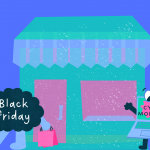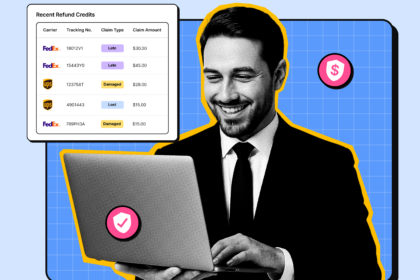E-commerce brands prioritize communicating with their customers frequently to influence their purchasing decisions and offer a decent experience associated with the brand.
However, the situation becomes radically different when the critical post-purchase phase of the customer journey begins. This is where the brand’s efforts towards a great customer experience (CX) suffer tremendously due to inadequate customer engagement leading to irreparable problems and lost opportunities.
If you’re an E-commerce or D2C store owner, customer support, or customer experience leader; this article is for you. Here are the things we’ll be covering in it.
What Is Post-purchase Communication?
In simple terms, post-purchase communication is any sort of interaction between the brand and the customer after the latter has purchased with the former.
Any touchpoint that exists in the middle of the order getting confirmed to the order getting delivered or the returned order making its way back to the store qualifies as a post-purchase communication.
Post-purchase communication exists in many forms. Keep in mind that customers always expect brands to initiate communication hence, common forms of communication are order status notifications via emails and SMS, order tracking pages, customer support and social media interactions, delivery and returns feedback requests, etc. We’ll look at all of them in detail below.
Now that we’ve got a hang of what it means, let’s get into the underlying issues that exist in the post-purchase phase of the customer journey due to lack of communication.
Issues That Emanate from Lack of Proper Communication in the Post-purchase Phase
Today’s customers have almost unrealistic expectations when it comes to their experiences and this extends to the post-purchase phase too. Like this one for example.
Jokes apart. The post-purchase is notorious for service failures, billing errors, and everything that comes along with it. Such issues pose a real challenge for brands to meet customer expectations, let alone exceed them.
To make matters worse, brands often leave this valuable phase to third-party shipping carriers. This unfortunately results in a situation where communication suffers tremendously during this critical phase of the customer journey leading to irreparable problems and lost opportunities in the form of:
- 82% of online shoppers are worried about their orders not reaching them on time.
- Up to 40% of support inquiries are WISMO (where is my order) or return status related.
- 30% of your customer support team’s time and effort is wasted handling repetitive delivery and return issues.
- 78% of online shoppers won’t purchase from a brand again after ONE negative delivery or returns experience.
- 12% of revenue is LOST by not selling more to customers during their ‘order’ and ‘return’ tracking moments.
On the other hand, effectively engaging with your customers comes with a host of benefits for your e-commerce brand, particularly related to improving the post-purchase CX among other things.
Why Communicating in the Post-purchase Phase Is Essential to the Brand Experience
- Reduce customer anxiety when it comes to tracking their parcels – Pre-parcel anxiety is a real thing and more common than you think. Frequent communication from your end at this stage can mitigate their anticipation levels and reduce WISMO inquiries around parcel status by up to 70%. This can help you create a positive experience associated with your brand. Also, such proactive measures can free up your support team’s time and enable them to focus on other important stuff.
- Improve brand recognition and recall – Customers track orders 6 to 8 times before delivery. By sending customers to track their parcels with the shipping carrier, you can stand to lose valuable opportunities to engage with them and build your brand. By taking control of your communicating order tracking information with your customers, you can witness a 30% increase in customer delight and brand recall.
That’s not all! There are also other benefits you stand to gain through the high open rates of shipping transactional emails (80-85%) and a possibility of up to 25% lift in repeat purchase rates with your remarketing efforts.
Now that we’ve seen the what and the why, let’s move on to the foremost question that is pondering in your mind. “So how do I start effectively engaging with customers in the post-purchase stage to improve the brand experience?”.
And the answer to the question is simply proactively communicating with your customers at various stages of the post-purchase phase. How exactly? Here’s how.
How Businesses Can Proactively Communicate Post-purchase
Let’s start with the most basic question, what does one mean by proactive communication in the first place?
Simply put, proactive communication in the post-purchase stands in interacting with the customers about their needs and issues preemptively (even before they become aware of it).
We’ve already talked about how close to 40% of customer support tickets created are shipping, delivery or returns related. These tickets are created out of primary needs such as order status information, inability to determine the parcel’s location, the requirement to return an order, frustrated rants over package issues not being informed, etc.
In all of the above cases, mitigating their frustration is a walk in the park with the help of proactive communication. So, without further ado, let’s start looking at ways e-commerce businesses such as yours can proactively communicate with customers in the post-purchase phase and improve the brand experience as a result of it.
Inform about potential order delays in advance
Your customers’ parcels facing delays are a common sight during the holiday season.
This is primarily due to shipping carriers straining capacity amidst the huge incoming volumes of parcels.
While delays are indeed frustrating for your customers, their impact can be largely reduced when customers are informed of them. And one such way to do it is to throw an announcement on your homepage and the order confirmation page about the possibility of delays.
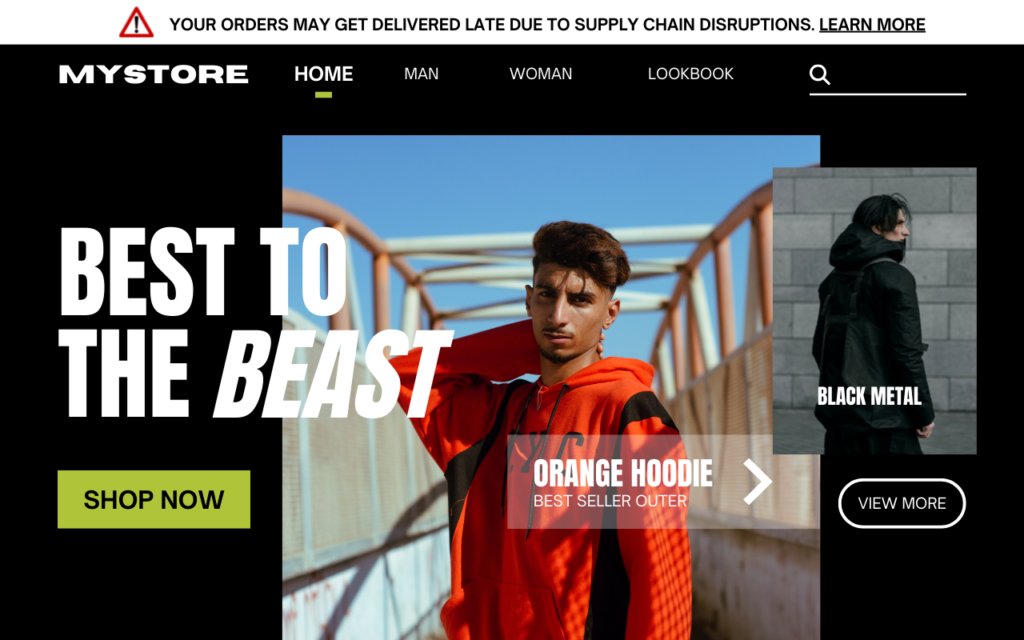
This way, your customers who are shopping with you will be ready to accept that their holiday gift may arrive later than usual.
Inform shipping deadlines in advance
One such pre-purchase tactic to reduce your post-purchase burden is to inform your customers about the last days to ship for each holiday.
If you’re a frequent shipper, you might be aware that your shipping partner such as FedEx or UPS always comes up with a holiday shipping schedule that they adhere to. Last-minute shoppers who are unaware of these deadlines might receive parcels late, much to their disappointment.
Similar to the possibility of delays, you can also share your shipping deadlines as the customers are placing their orders and selecting delivery options. If you’re a business that doesn’t work on specific occasions such as holidays, you can share that information with customers as well.
Send out an early order confirmation
Unlike other transactional notifications, your order confirmation notifications are not an option but more of a necessity as customers are always expecting the brand to confirm their order ASAP.
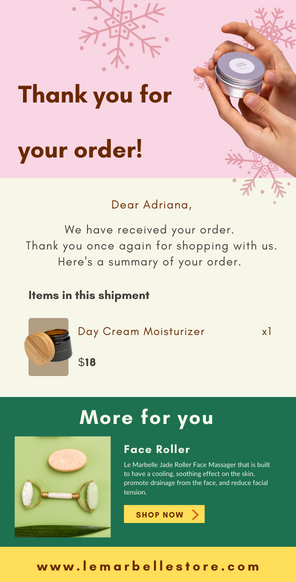
This sets your customers towards a great post-purchase experience by giving them the satisfaction of the purchase being a success and the ability to re-check the details and make corrective actions.
As for your brand, order confirmation emails can be your ticket to increasing retention rates via special limited-time offers and product recommendations based on the customer’s recent purchase. Keep in mind that increasing customer retention rates by 5% increases profits by 25% to 95%.
Send delivery status notifications
Shoppers want to be up to speed about when their orders will arrive or what their return status is. Automate delivery and return notifications to inform customers at every event of the package journey.
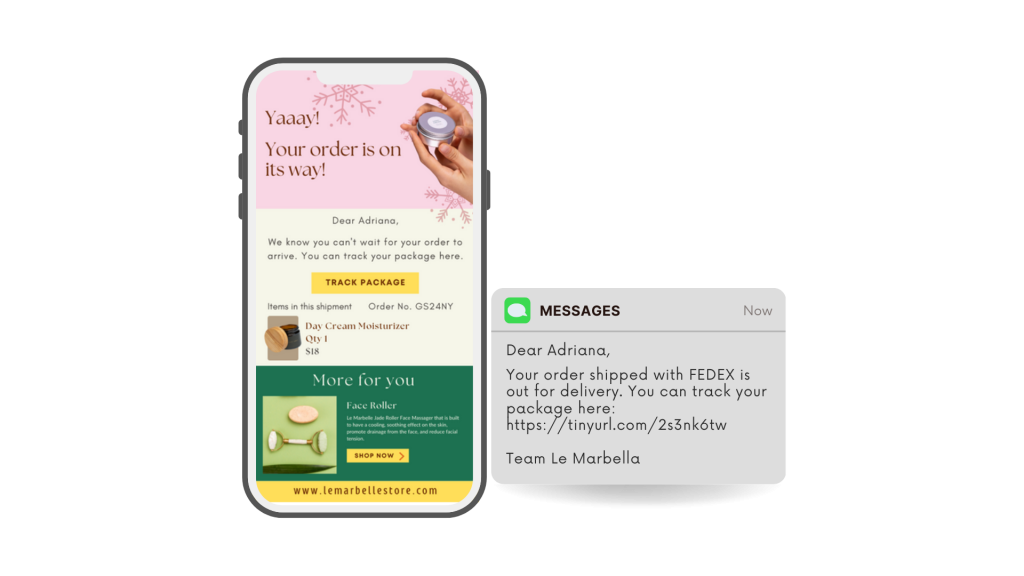
Some of the common shipping transactional notifications can be sent for events such as order shipped, in transit, out for delivery, delivered, etc. In case everything doesn’t go according to your plan and your customer’s order hits a roadblock, you can send out customized notifications for common events such as delivery exceptions, suspected delays, failed delivery attempts, etc.
You can even up things further by embedding an order lookup widget on your shipping notifications and website to make tracking self-service.
Provide branded order-tracking experiences
Sending customers to a carrier’s website to track their order is old world. While you’re in complete control of your customer’s buying experience, why not their tracking experience?
How to do it, you ask?
Enable your customers to track their orders in a “branded” order tracking page hosted in your domain.
Apart from the generic order summary and tracking information, you can also extend the capabilities of your tracking page by including:
- Brand elements such as font, logo, color schemes, etc, which can help brand recognition and recall.
- Options to contact support and initiate returns from your tracking pages to offer convenience and improve the brand experience.
- Sale announcements and personalized product recommendations to boost repeat purchases.
and so much more…
P.S. You can also enable your customers to track their ‘Order Delivery’ and ‘Return’ status by embedding a 24×7 order lookup widget on your website and chat tool. This helps you in making the brand experience smooth via self-service order tracking for your customers while considerably reducing the need for your support team’s help.
Collect customer feedback around post-purchase experiences and act on it
Allow customers to rate their overall delivery or returns experiences by including a rating/ feedback system on your ‘Delivery Notifications (Email & SMS)’ and ‘Branded Order Tracking Pages’ to gain customer feedback around post-purchase experiences and understand their satisfaction levels.
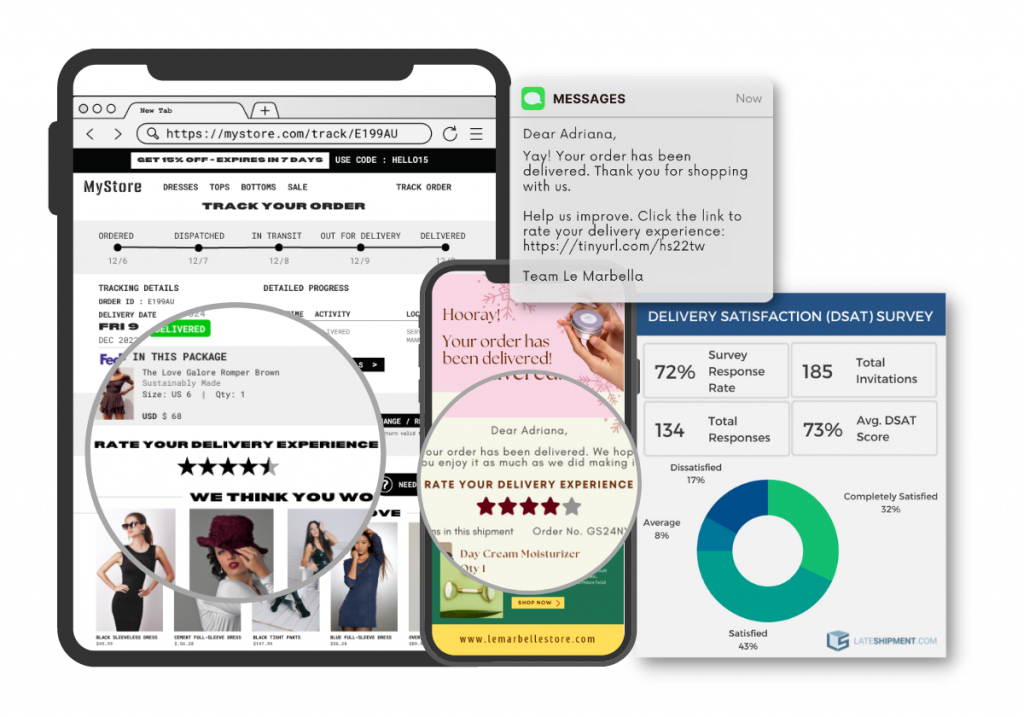
Getting feedback is one thing. But its true purpose lies in implementing required changes to your existing operations and making improvements that really matter.
Consistently directing efforts to improve CX post-purchase, and getting positive feedback from customers can help you promote brand credibility.
Simplify returns initiation
Customers return their purchases for various reasons ranging from size and fit related to quality issues.
And believe us, customers are not happy about returning the item(s) they purchased, as they’ve waited long enough to get their hands on it. Thus, let’s not make it any more stressful for them. Instead, simplify returns initiation by keeping the process limited to not more than 2 minutes.
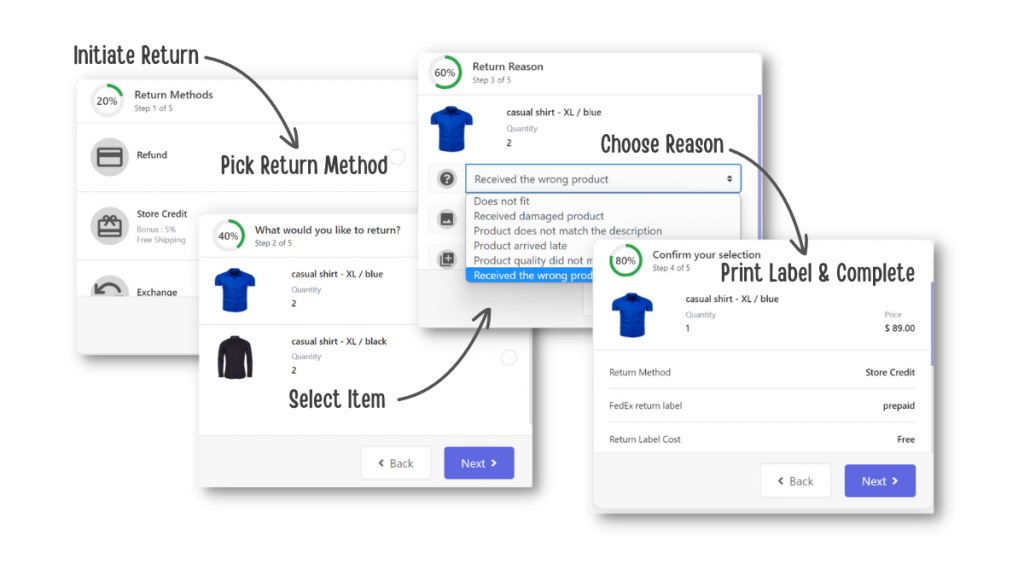
Inform customers of the status of their returned orders
Communicate the return status information with your customers at regular intervals via:
- Sending proactive updates on returns requests, via automated email and SMS status notifications to keep customers in the loop effortlessly.
- Enabling live package tracking that provides complete transparency around return status to eliminate customer anxiety about the whereabouts of their package.
Such measures in turn can help you make the returns experience seamless for your customers and give them the confidence to keep shopping with you.
The start of the holiday season can be a great time to implement all these post-purchase communication tactics right. Here’s a little hack — you don’t have to do all this by yourself. Instead, you can try making use of a post-purchase solution like LateShipment.com, to get things done on your behalf.
How Lateshipment.com Can Help You Provide a Great Brand Experience
Want to deliver delight with every order you ship?
Want to drive more sales during order tracking?
And lastly, want to make returns profitable?
Look no further. LateShipment.com is the world’s only all-in-one post-purchase success platform built for e-commerce retailers, D2C brands, and other businesses shipping parcels, no matter the volume of shipments.
Our Delivery Experience Management (DEM) is here to help you build memorable order delivery experiences and boost revenue during order tracking moments. And our Returns Experience Management (REM) is here to make returns hassle-free with flexible return options and smart automation to help retain revenue.
Also, LateShipment.com seamlessly integrates with 600+ shipping carriers and business tools that include E-commerce platforms, Helpdesks, and Marketing Automation tools to:
- Build branded tracking experiences in your domain and increase repeat purchase revenue.
- Initiate contextual communication with customers whose parcels may be facing issues.
- Automate shipping-related notifications for more than 10 shipping events and keep customers informed of their parcel status at all times.
And drive delightful post-purchase experiences at scale.
The value we offer is most evident when experienced first-hand.




